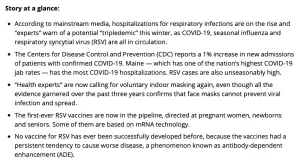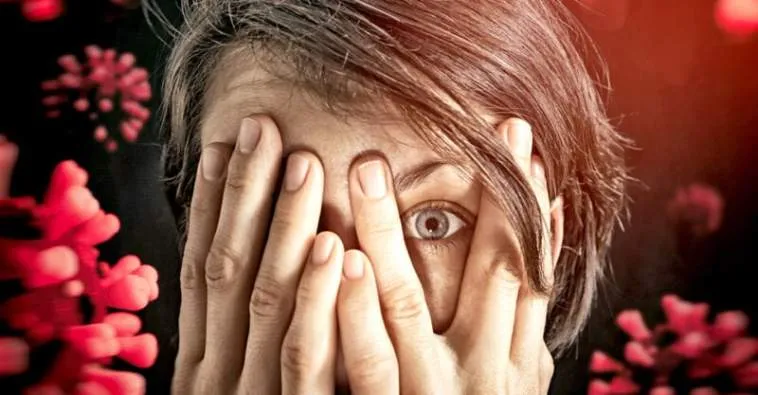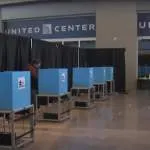
(The Defender) According to mainstream media, hospitalizations for respiratory infections are on the rise and “experts” warn of a potential “tripledemic” this winter, as people contract COVID-19, seasonal influenza and respiratory syncytial virus (RSV).
“The CDC [Centers for Disease Control and Prevention] reports a 1% increase in new admissions of patients with confirmed COVID-19 in the U.S.,” Yahoo! News reported at the end of October.
Far from being a pandemic of the unvaccinated, however, most COVID-19 patients are now, in fact, fully jabbed. As noted by Yahoo! News (before urging everyone to stay up to date on their boosters):
“The state with the most COVID hospitalizations is Maine even though it has one of the country’s highest full vaccination rates, which means a person has received their primary series of vaccinations (whether that’s one or two doses) and two weeks have passed since their last dose.”
RSV cases are also unseasonably high. According to Dr. Margaret R. Moon, co-director of Johns Hopkins Children’s Center in Baltimore, the hospital “is experiencing a surge of patients due to an increase in cases of RSV, as well as other reasons, and many surrounding hospitals are facing the same.”
Scare tactics to sell you on RSV vaccine
Fear sells, they say, and that’s certainly the adage used by Big Pharma when it comes to vaccines. A perfect example of this was recently published by Vox. “New RSV Vaccines Are Coming. This Is Very, Very Good News,” the headline states.
Why good news? Because RSV is a “baddie responsible for much of the mayhem” now seen in hospitals. Vox publishes classic fear porn:
“RSV generally causes cold symptoms but can also lead to severe lung inflammation or infection in very young and very old people. And it’s started off cold season with a bang:
“As of October 22, babies under a year old were being hospitalized at rates six times higher than they were at the same point in 2019, and the overall hospitalization rate was seven times higher for people of all ages.
“Every year, hundreds of children die of RSV, and tens of thousands more are hospitalized … RSV disease is one of the first pediatric illnesses that young pediatricians learn to fear, said [Amy] Edwards [a pediatric infectious disease specialist in Cleveland].
“Babies with the infection have terrible coughs and make wheezing noises as they struggle to move air through their swollen airways. ‘Once you’ve seen it, it’s like you never forget it,’ she said …
“In the US, the infection leads to about 58,000 hospitalizations and 100 to 300 deaths among young children each year, making it the country’s top cause of hospitalization in infants.
“Although it’s a particularly risky infection for babies born prematurely and for those with lung problems or heart abnormalities, about 40% of American infants who died of RSV over the past few decades were otherwise healthy.
“However bad RSV is in the United States, it’s worse globally. Every year, it causes an estimated 120,000 infant deaths worldwide … There is currently no approved antiviral treatment for RSV in either adults or children, and the one preventive option that currently exists is far from perfect …
“Babies need something better — something affordable that can protect all infants, not just the highest-risk ones, from this seasonal scourge. Adults, too, need something to protect them from a virus that reliably causes an immense amount of disease — ideally, something that’s as good as a flu shot, or better.”
“Something as good as a flu shot.” Really?
The 2017/2018 seasonal influenza vaccine’s adjusted overall effectiveness for the U.S. was just 36% against influenza A and influenza B virus infection, and between 2005 and 2015, the flu vaccine’s adjusted overall effectiveness was less than 50% more than half the time — with a low of only 10% in the 2004-05 season.
Other than the COVID-19 jab, it’s difficult to find another example of where a commercial product can fail to work more than half the time and still be recommended and even mandated.
Not to worry, though, because according to Vox, “RSV vaccines are super effective.”
Where have we heard that before?
Expect insane COVID measures to resume
As predicted, “health experts” are starting to call for voluntary indoor masking again, even though all the evidence garnered over the past three years confirms what we already knew in 2020, which is that face masks do nothing to stop viral infections.
And, as before, in the absence of actual scientific evidence, the narrative focuses instead on virtue.
Masking up is said to be a way to protect everyone, so just “do your part” and wear it, even though, in reality, it protects no one.
The same goes for vaccination. Both the flu vaccine and the COVID-19 shots are proven ineffective, yet the recommendation to get them continues.
And this season, you’re expected to get both!
First-ever RSV vaccines expected in 2023
The fact that RSV is now being highlighted as a severe risk is understandable in light of the fact that the first-ever RSV vaccines are now in the pipeline. According to CNN, four different RSV shotsare “nearing review by the U.S. Food and Drug Administration (FDA)” and more than a dozen others are in trials.
This includes a “long-acting injection” specifically for babies, to be given “right after birth” to protect them from RSV “for as long as six months.”
If that’s not a perfect example of how media tries to change the perception of the basic meaning of a term, I don’t know what is. Six months is hardly long-acting!
Historically, most vaccines have at least offered antibody-only “protection” for years, not months. Please recognize all vaccines fail to use cellular immunity to protect you, which is far more important than humoral antibody protection.
This extremely short duration of antibody-only protection appears to be a hallmark of mRNA technology however, and indeed, at least some of these new RSV shots are mRNA based.
Moderna has announced it is working on an mRNA jab for RSV, which is scheduled for release in 2023.
They’re also working on a combination mRNA jab for COVID-19, RSV and the flu. (Ultimately, Moderna wants to create an annual mRNA shot that covers all of the top 10 viruses that result in hospitalizations each year.)
Janssen is also working on an RSV shot using an adenovirus vector, the same technology used in its COVID-19 shot, while Pfizer and GlaxoSmithKline (GSK) are testing “protein subunit” RSV vaccines for pregnant women and seniors.
According to Forbes, Pfizer announced Nov. 1, that it is ready to seek FDA authorization for its RSV vaccine.
In clinical trials this shot was given to pregnant mothers and the efficacy was measured not by whether it prevented RSV, but by severity of the infection in hospitalized babies during their first months of life.






